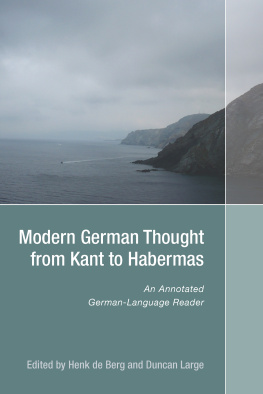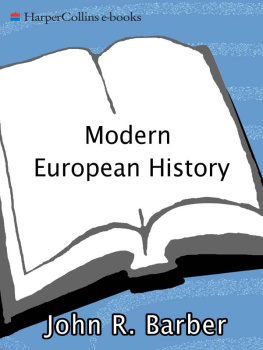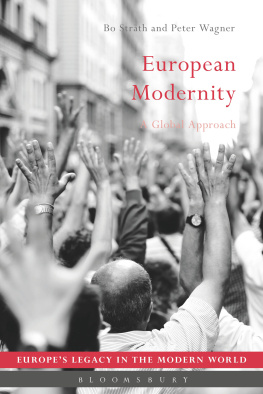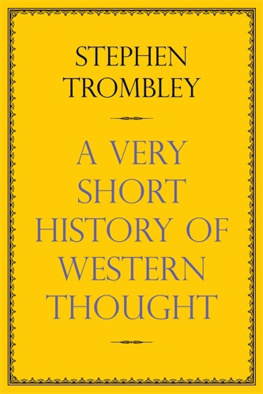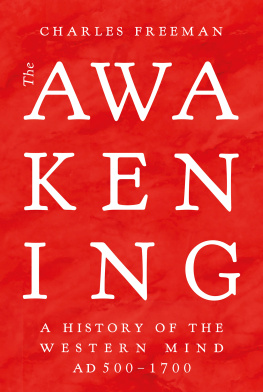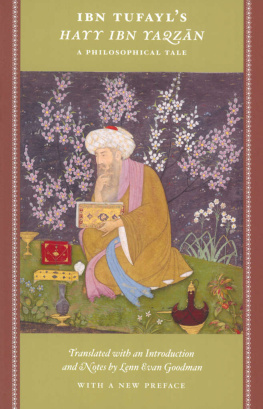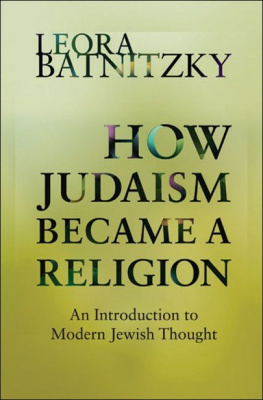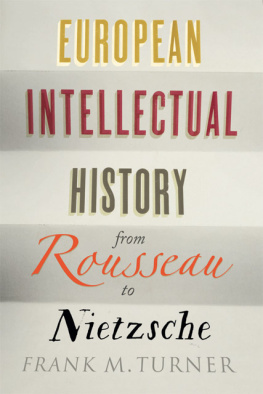ABOUT THE AUTHOR
Samar Attar was born in Damascus, Syria. She studied at Damascus University (two Licence es Lettres degrees, English and Arabic Literature), Dalhousie University, Canada (M.A., English Literature), and State University of New York at Binghamton (Ph.D., Comparative Literature: English, French, German). She taught English, Arabic, and Comparative Literature in the United States, Canada, Algeria, West Germany, Australia, and Turkey. During 19901991, she was a Rockefeller Fellow at the University of Michigan, Ann Arbor, and in 19941995, 19992000, and 20032006 a visiting research scholar at Harvard.
She has extensive publications in both English and Arabic in the fields of literary criticism, gender studies, migration, philosophy, translation, language teaching, and creative writing. Her books include The Intruder in Modern Drama (Frankfurt am Main 1981), A Journey at Night: Poems by Salah Abd Al-Sabur (Cairo, 1970), Modern Arabic For Foreign Students, four volumes plus teachers manual and seventeen cassettes (Beirut, 1988 and 1991), The Arab European Encounter: An Advanced Course for Foreign Students (Beirut, 1998) and Grammar in Context (Beirut, 1998). She has two novels: Lina: A Portrait of A Damascene Girl (Beirut, 1982 in Arabic and Colorado Springs, 1994 in English), and The House On Arnus Square (Sydney, 1988 in Arabic and Pueblo, Colorado, 1998 in English). Her poems have appeared in anthologies in Canada, the United States, and England, including The Penguin Book of Women Poets (London, 1978) and Women of the Fertile Crescent (Washington, 1981). Her radio play Australia Day appeared in Australian Writing 1988 (Penguin). Among her many articles are, Promiscuity, Emancipation, Submission: The Civilizing Process and the Establishment of A Female Role Model in the Frame-Story of 1001 Nights. ASQ 13, Nos. 3 and 4 (Summer/Fall 1991); Find me this friend and take the Caliphate: Abu Hayyan al-Tawhidi and the Paradox of Friendship, Fusul 14 (Cairo), Fall 1995; Conflicting Accounts on the Fear of Strangers: Muslims and Arab Perceptions of Europeans in Medieval Geographical Literature, Arab Studies Quarterly. 27.4 (Fall 2005); The Price of Dissidence: A Meditation on Creativity, Censorship, and Exile, Meridians: feminism, race, transnationalism. Vol. 6., No. 2 (Spring 2006). Her latest article, which appeared in ASQ, Spring 2007, deals with the vision of two different Palestinian writers of the city of Haifa. Attar was an invited speaker at various international universities and organizations in Egypt, Syria, United States, Canada, England, Australia, Spain, Germany, and the United Arab Emirates. Her book, Debunking the Myths of Colonization, will appear in 2010 by the University Press of America.
ACKNOWLEDGMENTS
I would like to thank Dr. Michael Kessler of Germany who encouraged me to collect these essays in a book form. However, my greatest debt is to Widener Library at Harvard University and to the university itself for having facilitated my research for many years and provided me with unique opportunities. For any errors or oversights I am solely responsible. I have worked on this project under severe personal hardship.
I shall always be grateful to Professor Lieve Spaas who published my first article on Hayys influence on Robinson Crusoe and remained a very good friend to this day. I would also like to thank Professor Rafael Pinilla who encouraged me to continue working on Ibn Tufayl, and invited me to give a lecture on the Andalusian philosopher at his university in Cordoba, Spain in the spring of 2000.
Finally, I would like to thank the following publishers for granting me their permission to reprint my articles: Macmillan, St. Martins Press, Cordoba University, and Stauffenburg Verlag. The articles are listed below:
Serving God or Mammon? Echoes from Hayy Ibn Yaqzan and Sinbad the Sailor in Robinson Crusoe. In Robinson Crusoe: Myths and Metamorphoses. Ed. Lieve Spaas and Brian Stimpson. London, New York: Macmillan, St. Martins Press, 1996, pp. 7897.
The Man of Reason: Hayy Ibn Yaqzan and His Impact on Modern European Thought. Qurtuba 2 (Cordoba), 1997, pp. 1947.
Beyond Family, History, Religion and Language: The Construction of a Cosmopolitan Identity in a Twelfth-Century Arabic Philosophical Novel. In Adventures of Identity: European Multicultural Experiences and Perspectives. Eds. John Docker and Gerhard Fischer.Tbingen: Stauffenburg Verlag, 2001, pp. 7589.
SELECTED BIBLIOGRAPHY
Primary Sources:Arabic
Ibn Tufayl. Hayy Ibn Yaqzan. Ed. & Introd. by Albert Nasri Nadir. 2nd. ed. Beirut: Catholic Press, 1968.
. Hayy Ibn Yaqzan. Ed. and Introd. by Faruq Sad. 3rd. ed. Beirut: Dar Al-Afaq, 1980.
. Hayy Ibn Yaqzan. Ed. and introduced by Jamil Saliba & Kamil Ayyad. 5th ed. Damascus: Damascus University Press, 1962.
. Hayy Ibn Yaqzan. Ed. and Introduced. Abd al-Karim al-Yafi. Damascus: Tlas Press, 1995.
Primary Sources: English
Ebn Tophail. An Account of the Oriental Philosophy Shewing, The Wisdom of some Renowned Men of the East; and Particularly, The profound Wisdom of Hai Ebn Yokdan. Trans. from Latin into English. George Keith. London, 1674. In Antonio Pastors The Idea of Robinson Crusoe. Vol. I. 30566. Watford: The Gongora Press, 1930.
Ibn Tufail, Abu Bakr. The History of Hayy Ibn Yaqzan. Trans. Simon Ockley. Revised with an introduction by A. S. Fulton. London: Chapman and Hall Limited, 1929.
. al-Qasi, Abu Bakr Muhammad. The Improvement of Human Reason Exhibited in the Life of Hai Ebn Yokdhan. Trans. Simon Ockley. 1708. Hildesheim; Zurich; New York: Georg Olms Verlag, 1983.
. The Awakening of the Soul. Rendered from the Arabic with Introduction. Paul Bronnle. London: John Murray, 1910.
Ibn Tufayl. Hayy Ibn Yaqzan: A Philosophical Tale. Trans. with introduction and notes. Lenn Evan Goodman. New York: Twayne Publishers, Inc., 1972.
. The Journey of the Soul:The Story of Hai bin Yaqzan as told by Abu Bakr Muhammad bin Tufail. Trans. Riad Kocache. London: The Octagon Press, 1982.
Primary Sources: French
Ibn Thofail. Hayy Ben Yaqdhan: Roman Philosophique DIbn Thofail. Trans. into French and introduced. Lon Gauthier. Alger, Imprimerie Orientale, 1900.
. Hayy Ben Yaqdhan: Philosophique DIbn Thofail. 2nd ed. Trans. into French and introduced. Lon Gauthier. Beyrouth: Imprimerie Catholique, 1936.
. Le Philosophe Sans Maitre. 1900. Traduction de Lon Gauthier. Prsentation de George Labica. Alger: S.N.E.D., 1969.
Primary Sources: Latin
Ibn Thofail. The Romance of Hayy ibn Yaqzan. Trans. from Arabic into Latin. Edward Pococke. Oxford, 16711700.
Secondary Sources
Abbas, Hasan Mahmud. Hayy Ibn Yaqzan wa Robinson Crusoe: Dirasa muqarana (Hayy Ibn Yaqzan and Robinson Crusoe: A Comparative Study). Beirut: al-Muassasa al-amma lildirasat wa al-nashr, 1983.
Abun-Nasr, Jamil M. A History of the Maghrib in the Islamic Period. Cambridge: Cambridge University Press, 1987.
Adorno W., Theodor. Kants Critique of Pure Reason (1959). Ed. Rolf Tiedemann. Trans. Rodney Livingstone. Oxford: Polity in association with Blackwell Publishers Ltd., 2001.
Alf Layla wa-Layla. Cairo: Bulaq, 1252 H.
Alford, C. Fred. The Self in Social Theory: A Psychoanalytic Account of its Construction in Plato, Hobbes, Locke, Rawls, and Rousseau. New Haven & London: Yale University Press, 1991.
Anawati, Georges C. Philosophy, Theology, and Mysticism. In The Legacy of Islam, 2nd ed. Ed. Joseph Schacht and C. E. Bosworth, 35091. Oxford: Oxford University Press, 1979.


